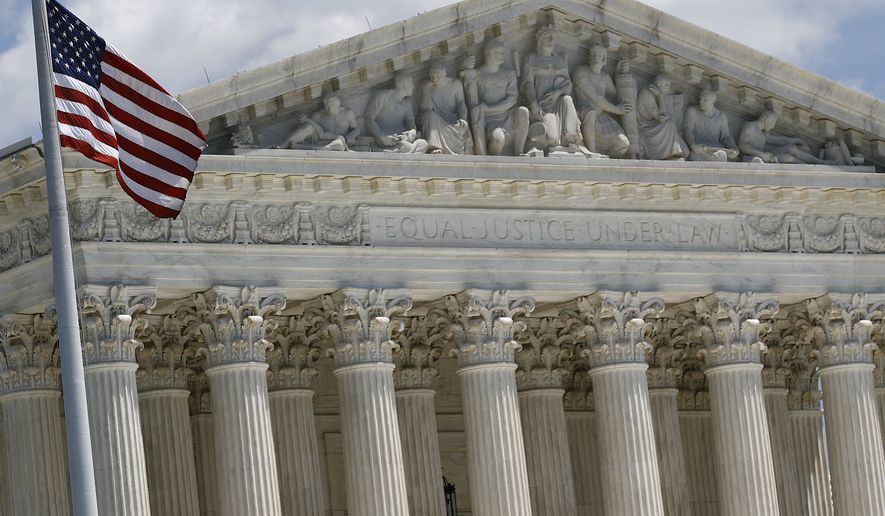The Supreme Court gave a boost to religious liberty and school choice advocates Tuesday by ruling that barring religious schools from a state scholarship program violated the Constitution.
In a 5-4 decision, the court’s conservative majority said Montana violated the First Amendment when it excluded religious schools from a program that allowed parents to use tax credits toward tuition at schools of their choice.
The program was used mostly by families of disadvantaged and disabled children.
“The prohibition before us today burdens not only religious schools but also the families whose children attend or hope to attend them,” Chief Justice John G. Roberts Jr. wrote in the court’s opinion.
The case, Espinoza v. Montana Department of Revenue, reached the country’s high court after the Montana Supreme Court struck down the program in its entirety to avoid treating religious and secular private schools differently.
The high court, though, said that move by the state amounted to religious discrimination, violating the free exercise clause of the First Amendment.
The justices said there was no “historic and substantial” tradition to support Montana’s decision to disqualify religious schools from government aid.
“In the founding era and the early 19th century, governments provided financial support to private schools, including denominational ones,” Chief Justice Roberts wrote.
Three mothers affected by the state’s move brought the case, hoping to keep their children enrolled at Stillwater Christian School in Kalispell, Montana.
School choice advocates cheered the decision, saying it validated parental rights over the education of their children.
“The weight that this monumental decision carries is immense, as it’s an extraordinary victory for student achievement, parental control, equality in educational opportunities, and First Amendment rights,” said Jeanne Allen, founder of the Center for Education Reform.
Chief Justice Roberts relied heavily on a similar case decided two years ago from Missouri.
In that dispute, the state barred a church from using a state grant that was going toward resurfacing playgrounds. A church in Columbia had a playground used by area children and sought access to the fund.
The high court said Missouri couldn’t exclude the church from a generally available state benefit just because it is a religious institution.
On Tuesday, a majority of the court ruled the same is true in the Montana case.
Attorney General William Barr called the ruling a win for religious liberty.
“The court’s decision represents an important victory for religious liberty and religious equality in the United States. As the court explained, religious people are ‘members of the community too,’ and their exclusion from public programs because of their religion is ‘odious to our Constitution’ and ‘cannot stand,’” Mr. Barr said.
The four Democratic-appointed justices would have barred the state program from being used for religious schools.
Justice Ruth Bader Ginsburg argued that the state struck down the scholarship program in its entirety for all private schools, whether religious or secular, which eliminated religious discrimination.
“The Montana Supreme Court’s decision does not place a burden on petitioners’ religious exercise,” she wrote in a dissent.
Liberals said the ruling undermines the separation of church and state.
Daniel Mach, director of the American Civil Liberties Union’s Program on Freedom of Religion and Belief, said the decision “undermines true religious freedom.”
“In the past, the court used to guard against government-funded religion. Today, the court has not only allowed, but actually required taxpayers to underwrite religious education,” he said.
Republicans champion school choice as part of their party platform, and it has been a top priority for the Trump administration.
Education Secretary Betsy DeVos, a longtime school choice activist, has proposed a federal tax credit that could go toward private school scholarships.
Mr. Trump has characterized school choice as “the civil rights statement of the year.”
“No parent should be forced to send their child to a failing school. President Donald J. Trump will fight for school choice, and he will always defend our first freedom: the free exercise of religion,” White House press secretary Kayleigh McEnany said.
• Alex Swoyer can be reached at aswoyer@washingtontimes.com.




Please read our comment policy before commenting.